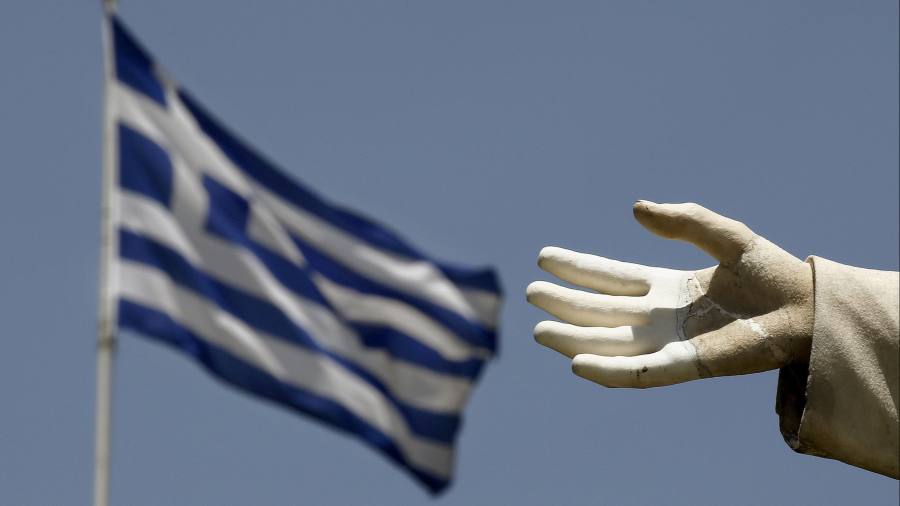
Receive free Greece debt crisis updates
We’ll send you a myFT Daily Digest email rounding up the latest Greece debt crisis news every morning.
Greece’s credit rating has been lifted to investment-grade status for the first time since the debt crisis that erupted more than a decade ago and resulted in three international bailouts.
DBRS Morningstar lifted its assessment of Athens’ creditworthiness on Friday to triple B, kicking off what is widely anticipated to be a series of upgrades from “junk” territory.
The agency said the upgrade reflected its view that, in line with Greece’s “impressive” record, “the Greek authorities will remain committed to fiscal responsibility, ensuring that the public debt ratio stays on a downward trend”. DBRS added that it expected Greece’s primary fiscal balance to reach a surplus of 1.1 per cent this year and 2.1 per cent in 2024.
Although the firm is not one of the “big three” agencies, its ratings are recognised by the European Central Bank, giving its opinions outsize clout within the euro area. The return to coveted investment-grade status is the latest sign of Athens’ rehabilitation in the eyes of investors, after being pushed to the brink of bankruptcy and exit from the eurozone.
“Greece’s upgrade to investment grade is like a seal of approval, firmly putting the crisis years behind us,” said Alex Patelis, chief economic adviser to prime minister Kyriakos Mitsotakis. “There is no room for complacency. We will work hard to live up to and exceed these new expectations.”
The upgrade brings welcome news for Greece which has been hit by devastating wildfires and extreme flooding in recent weeks, causing billions of euros of damage and intensifying concerns about extreme weather patterns caused by climate change.
“At a time when all our thoughts are with the victims of the unprecedented natural disasters and their families, the recovery of the investment grade for Greece after many years is a very important development for our country,” said Greece’s finance minister Kostis Hatzidakis.
Since its bailout programme ended in 2018, Greece has regained bond market access and brought down its debt as a proportion of gross domestic product to 171 per cent last year. In the second quarter of 2023, the country recorded the second-fastest GDP growth in the EU.
DBRS said improved creditworthiness also “reflects a strengthening in co-operation with the European Union and the euro system institutions”, coming from past fiscal consolidation and reforms.
DBRS’s move means Greek debt automatically becomes eligible for the ECB’s asset purchase programmes and for reinvestment of matured bonds on the central bank’s balance sheet, because it operates a “first best” principle among its four recognised credit rating agencies. The upgrade can also result in easier access to wholesale funding for Greek banks because of a broadening of the collateral base.
Greece was granted a waiver in the early stages of the Covid-19 pandemic from the ECB’s stipulation that it will only buy debt with an investment-grade rating. However, this was due to expire at the end of 2024.
“With the upgrade, the country gains full access to ECB liquidity,” said Dimitris Malliaropulos, chief economist of the Greek central bank. “This will have a favourable effect on Greek bond yields.”
Investors do not expect a big reaction when the bond market opens on Monday because Greek bonds already trade at investment-grade levels. Benchmark Greek 10-year debt is trading at a yield of 4 per cent, lower than the 4.3 per cent yield for Italy, which has investment-grade status. Yields fall when prices rise.
But the upgrade brings Greek bonds one step closer to being included in investment-grade indices, which typically require a rating from at least one of the three leading agencies — S&P, Moody’s and Fitch. That would open up Greek government debt to a broader pool of investors, some of whom are forbidden by their mandates from buying junk-rated bonds.
DBRS’s move “supports the already existing speculation that this is a path the other rating agencies will follow”, said Richard McGuire, head of rates strategy at Rabobank.

